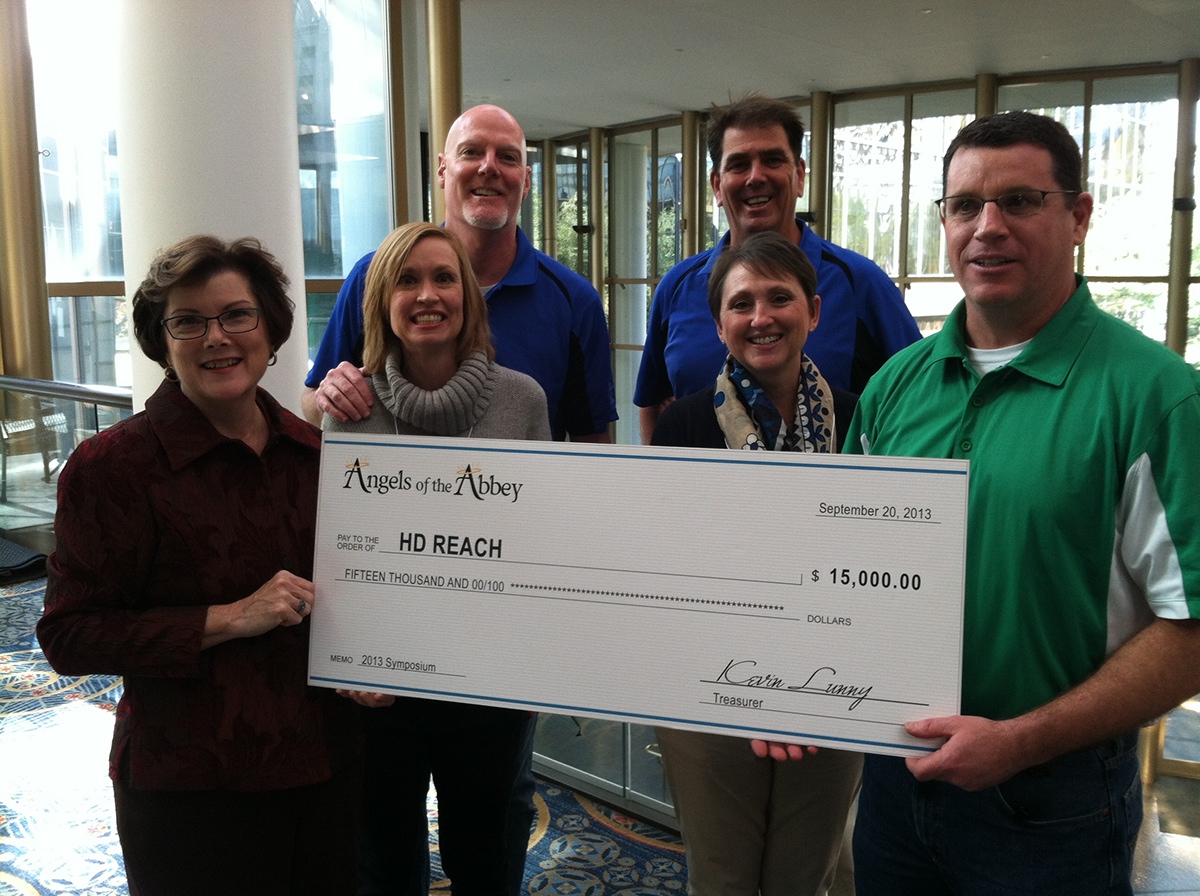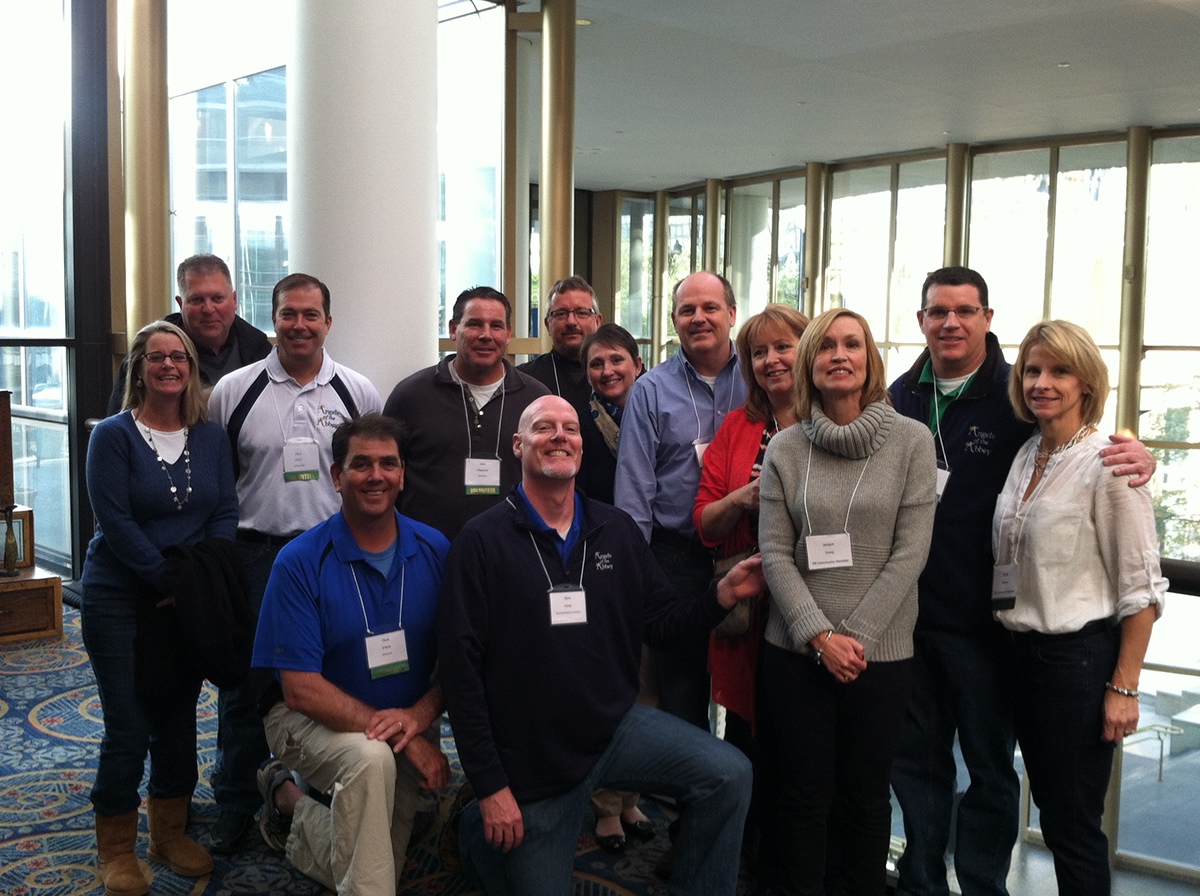
The Opportunity to Make a Difference:
Caring for HD patients and families

Charlotte, N.C. - The following remarks are by Christopher G. Young on November 8th, at the 7th Annual Huntington Study Group Clinical Research Symposium and Workshops in Charlotte, North Carolina. In his presentation, Young shares the gripping story he and his wife Jacque face as a family with Huntington’s disease. Mr. Young is an executive with Bank of America in Charlotte and serves as Vice President of HD Reach, a North Carolina nonprofit dedicated to helping Huntington’s patients and their families.
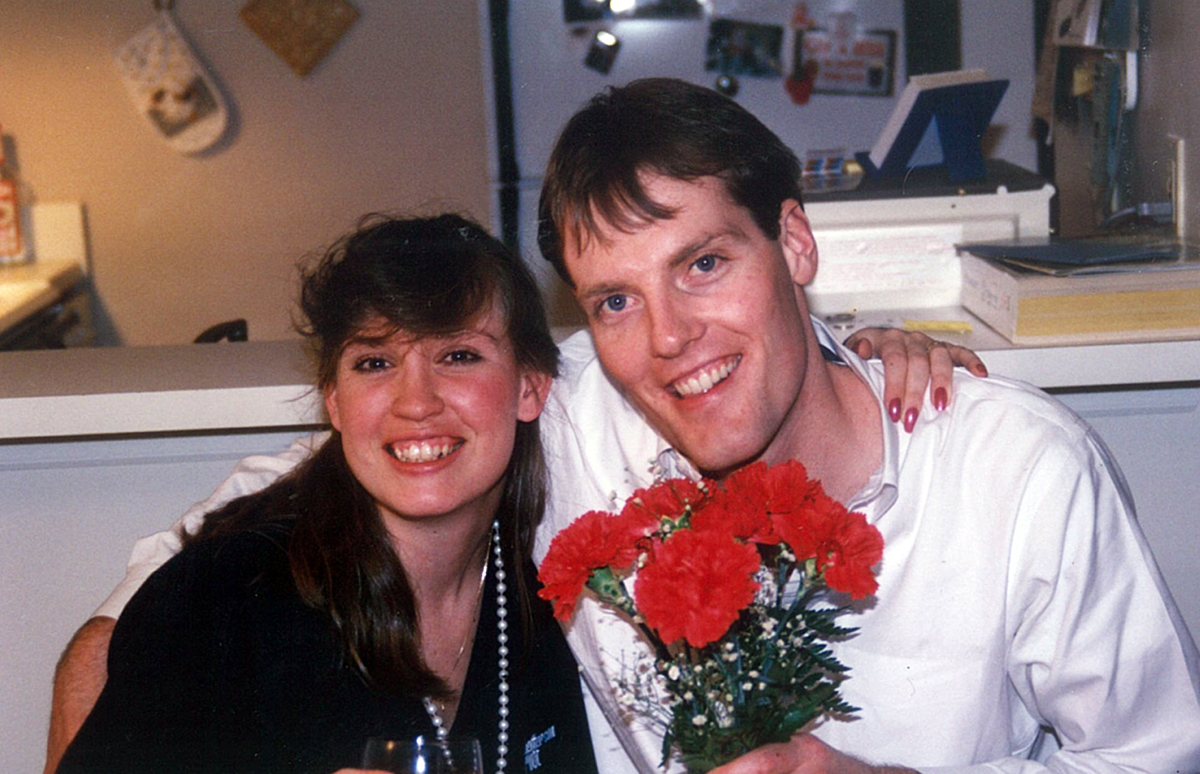
Good Morning. My name is Chris Young and I have lived in the Charlotte area for over 25 years, so on behalf of the Charlotte community, I’d like to say to those of you from out of town, welcome to Charlotte y’all. Whether you’ve traveled from near or far to join us, we are glad you are here and thank you for coming.
I have had a lot of titles in my life, some of which I have carried to varying degrees of success. In the course of my life I’ve been a son, a brother, and a husband. Since my wife Jacque is joining us today, I’ll say I’ve had some success as a husband but as I’m often told, there is always room for improvement. I’ve been called a banker and since my boss is here as a volunteer, I’ll say banking has been rewarding and fulfilling beyond my wildest expectations. I’ve never been called a public speaker before, so I’ll ask for your kindness this morning.

The first time I met my future mother in law, was in 1989 and she was in a nursing home in rural NC. My wife Jacque and I met in college and although we didn’t date in college, we were friends. After college, Jacque and I had been dating for a while and I thought we were getting fairly serious. However, she seemed reluctant to introduce me to her family, who only lived a couple hours away in Asheville. Even though she went home for the weekend fairly frequently, she never invited me along.
Shortly thereafter, after I pressed her, Jacque explained to me that her mother was very sick and no longer able to live at home. So her visits home often included visits from her father’s house to the nursing home where her mother was. Originally Jacque explained, her mother was diagnosed with depression. Jacque told me stories of how her mother used to ask her to brush her hair for her, or help her with menial tasks around the house, but Jacque said no because the doctor treating her mother didn’t want Jacque and her siblings to enable their mother in not fighting her depression.
Over time Jacque’s mother’s symptoms worsened and included sleeplessness and aggression. She would bang pots and pans in the middle of the night because she couldn’t sleep and wanted someone to get up to talk to her, or she would lose her temper for no reason. The whole house would be miserable with each other and mad at her mother. It was painful to see the anguish and guilt on Jacque’s face as she told me these stories.
Can you imagine she said, a daughter telling her own mother she wouldn’t brush her hair for her.

The last time I saw my mother in law was in early 1991, she was in the same nursing home, except she was being restrained by her arms and legs in the bed she was laying in for her own protection, and the protection of the other patients and staff. This was shortly after Jacque and I were married in November 1990. She died unexpectedly of pneumonia a short time later in early February 1991.

Other than losing her mother so soon after our wedding, Jacque and I started our marriage like most other couples. We began careers and watched our friends marry and have children. Jacque sat for and obtained her CPA license. She worked with several local Fortune 500 companies, eventually landing at the local utility company doing accounting work in their nuclear division. We worked hard and in our free time we enjoyed travel and our families and friends.
During our visits to Jacque’s family we noted that increasingly Jacque’s brother Mike and her sister Martine were exhibiting some of the same symptoms that Jacque’s mother had shown. It was during this time that I can first recall hearing the term Huntington’s disease. Jacque’s father told me that the family doctor explained to him that a post mortem autopsy determined that HD was the illness her mother battled, and it was likely that Mike and Martine, the two eldest children, had HD. He explained it was a hereditary disease, and that each successive child had a decreasing chance of having HD. Since Jacque was the 5th child of 5, we naively thought our chances were good that the illness that was devastating her family would not touch Jacque. The term blissfully ignorant would be an appropriate description of me during this time.
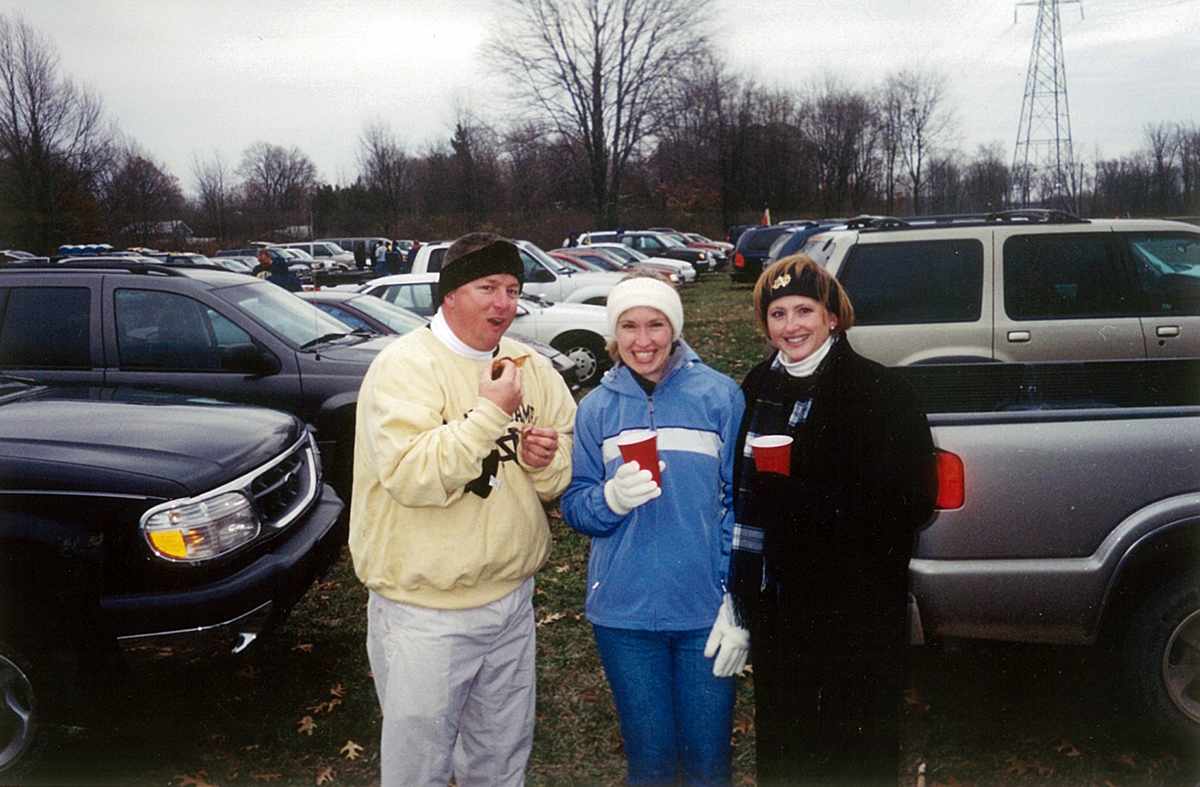
Beginning in mid-2005, Jacque’s behavior started to change. She complained to me that she was having difficulty concentrating at work, and she needed more time to finish things than she used to. As time went by, she would be so consumed with worry at night, she began having difficulty sleeping, which was very unusual for her. She also increasingly began to withdraw from me and our social life. She didn’t seem to care too much what I did or where I went. She became increasingly quick to anger and had difficulty driving at night or in traffic.
Finally one day at work I received a frantic phone call from her. She told me I needed to come home right away because she had been out for a run and had fallen and injured herself. When I got home, she looked like she had been in a brawl. She had large cuts on her chin, elbows, knees and hands. When I asked her if she tripped over a curb or stepped in a pothole she said no, I was running and the next thing I knew I was falling. She then told me she thought she had Huntington’s disease and the light bulb went on in my head.
Of course she had HD, how could I not have realized this sooner, it explained everything that had been happening with her over the last few years. She didn’t hate me and want a divorce, she was sick. We agreed she should get tested immediately.

On July 9, 2007, the day before her 41st birthday, Jacque was diagnosed with HD via a genetic test. My belief is that the neurologist who gave us her diagnoses did not know much about HD. After he confirmed that Jacque had HD, I asked him what the treatment protocol was for us to follow, thinking how in a cancer diagnosis you hear about chemo, radiation or surgery and design a battle plan to fight the disease.
He told us that HD was always fatal but that some people believed zinc was good for people with HD. He suggested we go to the GNC store and ask the person behind the counter for the purest zinc they sold. He also suggested we could come back in six months and take an MRI of Jacque’s brain. He could compare that MRI to an MRI she had taken recently and gauge how rapidly her brain was deteriorating.
Lastly he said if we didn’t have any more questions, he had patients waiting and needed to move along. As Jacque and I drove home that afternoon, she looked at me and through her tears she said, that doctor really didn’t tell us that there is anything we can do about this. It was as hopeless and powerless as I’ve ever felt in my life to see the fear, sadness and resignation on her face and not have any idea how to help her.
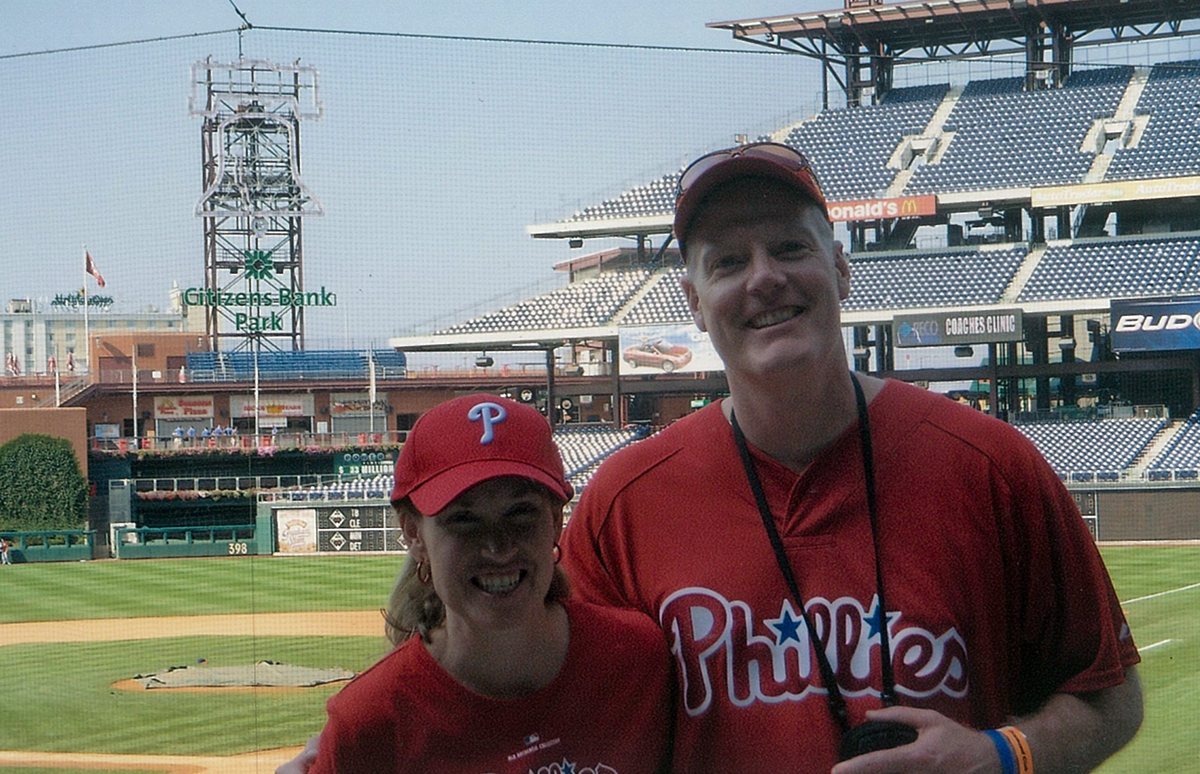
The next morning, I was determined to do something, so I did what a lot of people do in the internet age, I got online and googled Huntington’s disease, Charlotte NC. The name Lee Epps popped up with a phone number in conjunction with an HD benefit golf tournament. I called Lee and said my wife was just diagnosed with HD and I don’t know what to do. Lee said you need to call a woman named Pam Lowe. I called Pam Lowe and told her the same thing I told Lee.
I promise you I will never forget what Pam did for me as long as I live. She said hold on one minute and let me close my office door. Pam spent the next hour and a half on the phone with me and she quite literally saved our lives. She told me many things about her husband and their battle with HD. She told me how hard my life was going to become. She told me stories about her husband, who once was a plumber and how he would get lost in the crawl spaces of customers homes because he couldn’t find the crawl space door to get out even though he had crawled in only a short time earlier. She told me about getting so frustrated by his behavior she would take a 10-minute car ride and scream at the top of her lungs in order to keep her sanity. She told me how much in spite of it all, she missed her husband because HD had taken him.
The main thing Pam told me was that Jacque and I needed to contact Francis Walker, Christine O’Neill and Vickie Hunt at Wake Forest University right away and that they would help us.
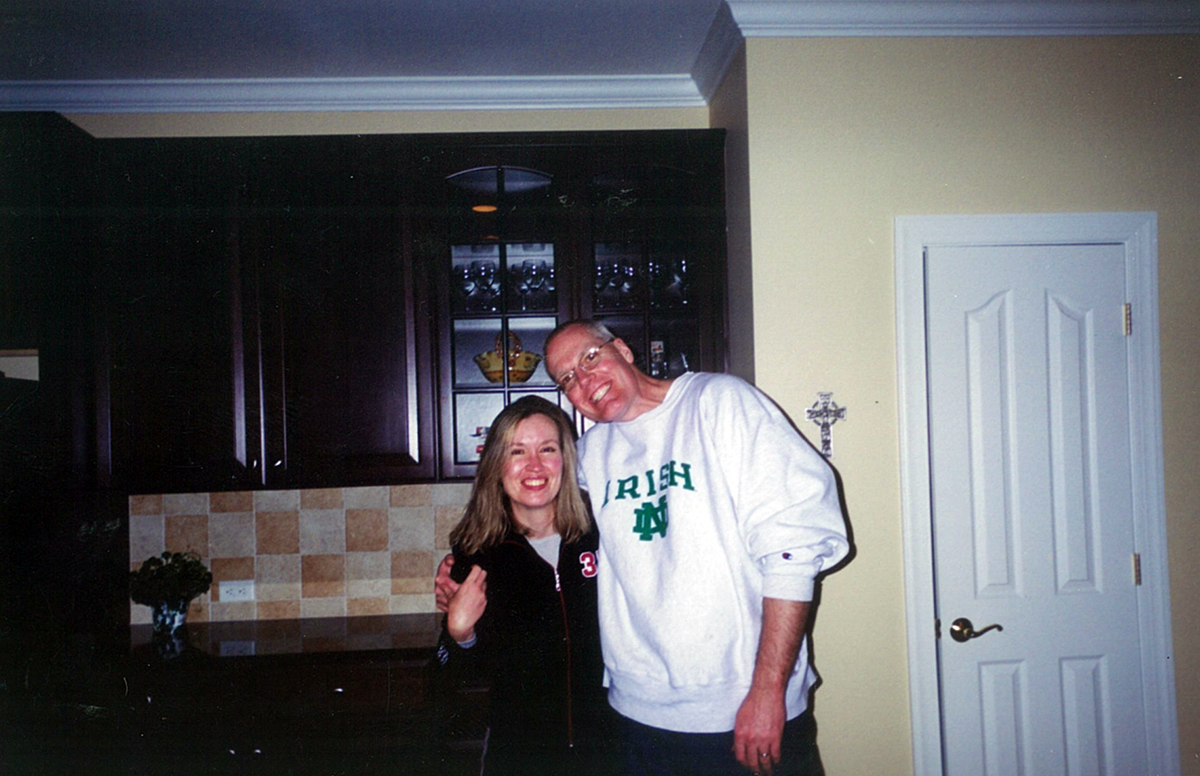
Well we took Pam’s advice and now 6 plus years later, though Jacque’s Mom, brother Mike and sister Martine have all been taken by HD, we have hope and purpose to our lives.
The initial all consuming fear and dread about the future has subsided. Three months after Jacque’s diagnosis we took a bucket list trip to Ireland. Our friends and families have rallied around us with love, support and optimism.
Through the Wake Forest team, we’ve met the Duke and UNC teams. We’ve learned that though there may not be a cure for HD itself, there are treatments available for its symptoms that have helped the quality of our lives immeasurably. We’ve participated in clinical trials and research studies and stand ready to enroll in the next one.
I’m proud to say we are part of two organizations in NC that are dedicated to helping HD families and improving their lives, so that we can pay forward the kindness Pam Lowe showed us.
Though Jacque had to stop working in 2009 and is no longer able to drive, through diet, and exercise, skilled care and helpful medicines, perseverance and the grace of God, I’m pleased to say we both live full and purposeful lives. I’d like to ask Jacque to stand up and wave hello.
Jacque’s two remaining sisters are both thankfully not showing HD symptoms and are an integral part of her life.

Jacque and I, on behalf of the entire North Carolina HD community, would like to thank each and every one of you in attendance today. Whether you are a medical professional, affiliated with HSG, volunteer or learning about HD treatment today for the first time, we sincerely appreciate your presence in Charlotte.
I know it is common and polite at events like these for speakers to receive applause from people in the audience. We’d like to ask you to do something on behalf of the North Carolina HD community, since they can’t all be here today to do it themselves. Instead of applause for us, please applaud your colleagues and yourselves for the work you are doing and will do to help HD families and for your presence here today. That work is a lifeline to desperate people and a beacon of hope in a world that can become very dark. We sincerely appreciate your efforts.
Thank you and God bless you.
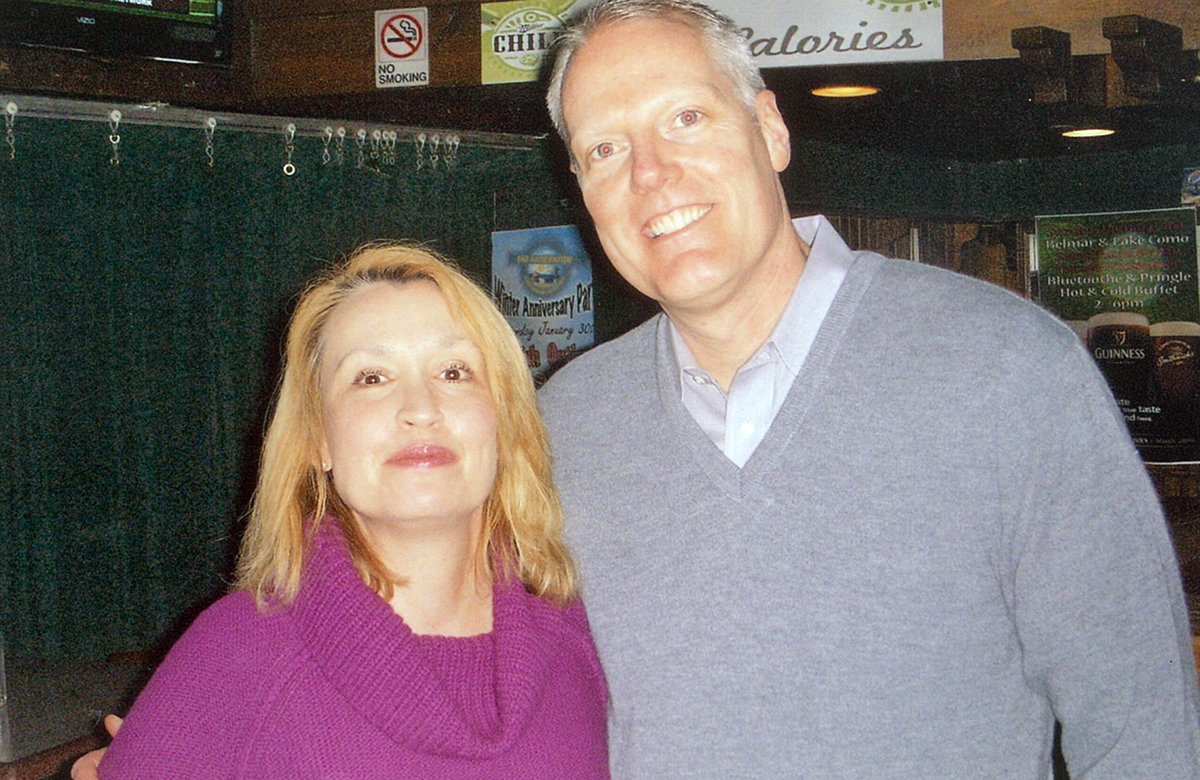
Remarks by Christopher G. Young on November 8th, at the 7th Annual Huntington Study Group Clinical Research Symposium and Workshops in Charlotte, North Carolina. Huntington Study Group consists of clinical researchers worldwide, who care for HD patients and families and work diligently to combat Huntington’s disease.
